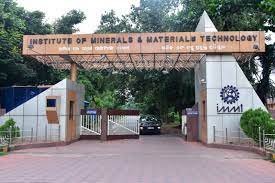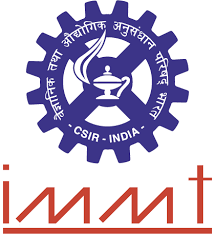Application, transcripts, SoP, LORs, GATE (if req), interview (if req), admission decision, financial aid, visa, enrollment.
Admission Process: M.Tech. in Mineral Engineering Course
Pursuing a Master of Technology (M.Tech.) in Mineral Engineering is a significant step toward a rewarding career in the mining and mineral processing industry. This specialized program equips students with the knowledge and skills needed to excel in various roles related to mineral exploration, extraction, processing, and management. The admission process for M.Tech. in Mineral Engineering programs may vary among institutions, but it generally follows a similar structure. In this guide, we will provide an overview of the typical admission process.
1. Research and Pre-Application Stage:
Before embarking on the application process, prospective students should conduct thorough research on universities and institutions that offer M.Tech. programs in Mineral Engineering. Consider factors such as program reputation, faculty expertise, research facilities, and location. Make a list of the institutions that align with your career goals and preferences.
2. Eligibility Criteria:
Each institution may have specific eligibility requirements, but the following are commonly required criteria:
Educational Qualifications: A bachelor's degree in a related field, such as mining engineering, metallurgy, or geological engineering, is typically required. Some institutions may accept graduates from closely related disciplines.
Minimum Academic Scores: A minimum aggregate score, often specified by the institution, is required for undergraduate studies. This may vary, but it is typically around 55% to 60% or equivalent.
Standardized Test Scores: Some institutions may require applicants to qualify for standardized tests like the Graduate Aptitude Test in Engineering (GATE) or other institution-specific exams. The specific test and minimum score required may vary.
Work Experience: While not always mandatory, some institutions may prefer applicants with relevant work experience in the mining or mineral processing industry.
3. Application Process:
Once you have identified the institutions you want to apply to and confirmed that you meet their eligibility criteria, you can begin the application process. The key components of the application typically include:
- Completing an online application form provided by the institution.
- Uploading required documents, including transcripts, letters of recommendation, statement of purpose (SoP), and a resume or curriculum vitae (CV).
- Paying the application fee varies from one institution to another.
4. Transcripts and Academic Records:
Most institutions require applicants to submit their undergraduate transcripts and academic records. Ensure that your transcripts are official and sealed. Some institutions may also require a course-by-course evaluation of foreign transcripts, which can be obtained through recognized evaluation agencies.
5. Letters of Recommendation:
Many M.Tech. programs in Mineral Engineering require letters of recommendation (LORs) from professors, employers, or professionals who can vouch for the candidate's academic abilities, work ethic, and potential in the field. These letters should be well-crafted and tailored to the specific program you are applying to.
6. Statement of Purpose (SoP):
Your SoP is a critical part of your application. It should articulate your academic and career goals, your interest in mineral engineering, and why you want to pursue this particular program at the chosen institution. Be concise, sincere, and compelling in your writing.
7. Standardized Tests (e.g., GATE):
If the institution mandates standardized test scores, such as the GATE, it is essential to register for these exams well in advance. Prepare diligently to achieve competitive scores and submit your scores directly to the institution as per their requirements.
8. Interview (if applicable):
Some institutions may require interviews as part of the admission process. Prepare for these interviews by reviewing your application, SoP, and relevant topics in mineral engineering.
9. Admission Review and Selection:
Once you have submitted your application and all required documents, the institution's admissions committee will review your application holistically. They will consider your academic record, standardized test scores, letters of recommendation, SoP, and, if applicable, interview performance.
10. Notification of Admission Decision:
Institutions typically notify applicants of their admission decisions via email or through an online portal. If you receive an offer of admission, you will usually have a specific period to accept or decline the offer.
11. Financial Aid and Scholarships:
Explore financial aid options, scholarships, and assistantship opportunities offered by the institution. These can significantly alleviate the financial burden of pursuing an M.Tech. program.
12. Visa and Immigration (for International Students):
If you are an international student, you will need to apply for a student visa to study in the host country. Follow the visa application process and ensure you have all the required documents.
13. Enrollment and Registration:
Once you have accepted the admission offer and completed the necessary financial and visa-related processes, you will be able to enroll in courses and register for your M.Tech. in Mineral Engineering program.
 2 Years
2 Years
 Post Graduate
Post Graduate
 Engineering
Engineering
 Full Time
Full Time



 back
back